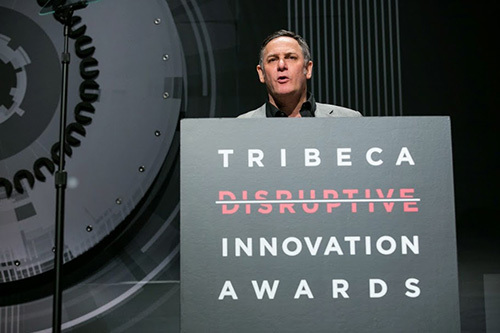
What if we disrupted Forbes Magazine criteria for its annual Billionaire’s list? What if we defined Billionaires as entrepreneurs helping to solve earth’s most pressing challenges? Surely humanity, and the whole of planet earth, deserve a new type of Billionaire?
As Dr. Howard Gardner points out, “the biggest change in American Society over the last century has been our fatal error of evaluating individuals by the amount of money that they make.” Maybe “Billionaire” should mean helping a billion people instead of making a billion dollars, suggests Jason Silva, philosopher and Tribeca Disruptor Innovation Honoree 2015.

The 2016 Tribeca Disruptive Innovation Awards, one of the great highlights of The Tribeca Film Festival, is honoring some of the talent we could one day find on Planet Earth’s Billionaire’s List. The Award, an iconic red hammer, is both a symbol of building new models and smashing broken ones. This year’s list of honorees are a diverse group whose work “inspires change, unites communities and seeks to solve some of society’s most pressing issues,” says Co-Founder and Chief Curator Craig Hatkoff. Honorees I have interviewed in years gone past have described the competencies disruptors need to succeed in today’s world as imagination, grit, empathy, resilience, problem solving skills, risk tolerance, intense work ethic and courage, among others. “If you’re not passionate, challenged and curious, you’re probably on the wrong path,” commented 2015 Honoree Alyse Nelson. Indeed, every disruptor I’ve met believes every obstacle is surmountable and every problem (once you fully understand it) has a solution if you have the nerve to be creative enough.
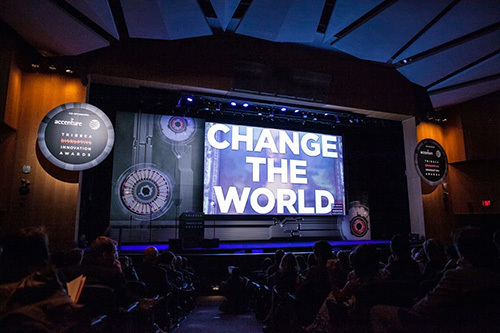
This year’s Disruptors possess these competencies and skills combined with the aspirations to help billions of people in a myriad of ways. They have caused paradigm shifts in domains with a wide range of diversity; from social justice to education, philanthropy to banking, sports, media and everything in between. So meet the new billionaires on my mobile. They include Emily Callahan and Amber Jackson, who are using their skills and intellect to turn oil rigs into coral reefs; Nate Parker, the activist filmmaker, writer, humanitarian and director of The Birth of a Nation; Scott Harrison, the founder of Charity Water, whose projects are delivering clean water to over 6 million people; Anthony D. Romero, the executive director of the ACLU, who has dedicated his life to protecting the liberties of Americans; Louise Psihoyos, the award-winning filmmaker and executive director of the Oceanic Preservation Society; Jennifer Jacquet, an environmental social scientist who focuses on large-scale cooperation dilemmas and is the author of “Is Shame Necessary”; Brent Stapelkamp, whose work promotes ways to mitigate the conflict between lions and livestock owners and who is the last researcher to have tracked famed Cecil the Lion; Fabio Zaffagnini, creator of Rockin’ 1000, co-founder of Trail Me Up, and an expert in crowd funding and social innovation; Alan Eustace, who worked with the StratEx team responsible for the highest exit altitude skydive; Renaud Laplanche, founder and CEO of the Lending Club – the world’s largest online credit marketplace working to make loans more affordable and returns more solid; the Suskind Family, who developed the “affinity therapy” that’s showing broad success in addressing the core social communication deficits of autism; Jenna Arnold and Greg Segal, whose goal is to flip supply and demand for organ transplants and build the country’s first central organ donor registry, creating more culturally relevant ways for people to share their donor wishes; Adam Foss, founder of SCDAO, a reading project designed to bridge the achievement gap of area elementary school students, Hilde Kate Lysiak (age 9) and sister Isabel Rose (age 12), Publishers of the Orange Street News that has received widespread acclaim for its reporting, and Max Kenner, the man responsible for the Bard Prison Initiative which enrolls incarcerated individuals in academic programs culminating ultimately in college degrees. Alec Ross, Author of “The Industries of the Future,” receives the 2016 Book of the Year. Lifetime achievement awards are being presented to Thomas Heatherwick for his work in design and architecture, and Dr. Richard Leakey for his incredible job in helping to shut down the ivory trade. Leakey campaigned for the protection of the Great Apes and has become increasingly vocal about the threats to biodiversity arising from global climate change.
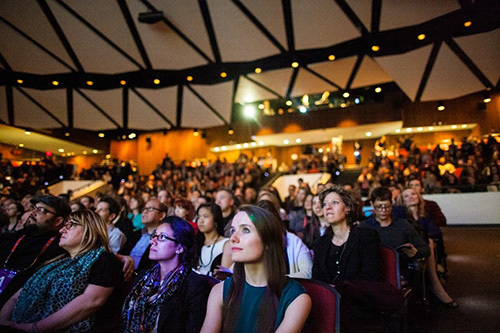
The awards this year are of course even more relevant with Earth Day around the corner. It is vital we think of new ways to look at the world around us if we are to prevent further damage and heal the world from its current wounds. As Professor Clay Christensen (whose ground-breaking theory of disruptive innovation inspired these annual Awards) says, “Technology alone cannot solve the world’s most intractable problems. We must crawl up inside and shine a light on what makes people tick.”
(Photos are courtesy of Andrew Federman/Tribeca Film Festival and CMRubinWorld)
Join me and globally renowned thought leaders including Sir Michael Barber (UK), Dr. Michael Block (U.S.), Dr. Leon Botstein (U.S.), Professor Clay Christensen (U.S.), Dr. Linda Darling-Hammond (U.S.), Dr. MadhavChavan (India), Professor Michael Fullan (Canada), Professor Howard Gardner (U.S.), Professor Andy Hargreaves (U.S.), Professor Yvonne Hellman (The Netherlands), Professor Kristin Helstad (Norway), Jean Hendrickson (U.S.), Professor Rose Hipkins (New Zealand), Professor Cornelia Hoogland (Canada), Honourable Jeff Johnson (Canada), Mme. Chantal Kaufmann (Belgium), Dr. EijaKauppinen (Finland), State Secretary TapioKosunen (Finland), Professor Dominique Lafontaine (Belgium), Professor Hugh Lauder (UK), Lord Ken Macdonald (UK), Professor Geoff Masters (Australia), Professor Barry McGaw (Australia), Shiv Nadar (India), Professor R. Natarajan (India), Dr. Pak Tee Ng (Singapore), Dr. Denise Pope (US), Sridhar Rajagopalan (India), Dr. Diane Ravitch (U.S.), Richard Wilson Riley (U.S.), Sir Ken Robinson (UK), Professor Pasi Sahlberg (Finland), Professor Manabu Sato (Japan), Andreas Schleicher (PISA, OECD), Dr. Anthony Seldon (UK), Dr. David Shaffer (U.S.), Dr. Kirsten Sivesind (Norway), Chancellor Stephen Spahn (U.S.), Yves Theze (LyceeFrancais U.S.), Professor Charles Ungerleider (Canada), Professor Tony Wagner (U.S.), Sir David Watson (UK), Professor Dylan Wiliam (UK), Dr. Mark Wormald (UK), Professor Theo Wubbels (The Netherlands), Professor Michael Young (UK), and Professor Minxuan Zhang (China) as they explore the big picture education questions that all nations face today.
The Global Search for Education Community Page
C. M. Rubin is the author of two widely read online series for which she received a 2011 Upton Sinclair award, “The Global Search for Education” and “How Will We Read?” She is also the author of three bestselling books, including The Real Alice in Wonderland, is the publisher of CMRubinWorld, and is a Disruptor Foundation Fellow.
Follow C. M. Rubin on Twitter: www.twitter.com/@cmrubinworld


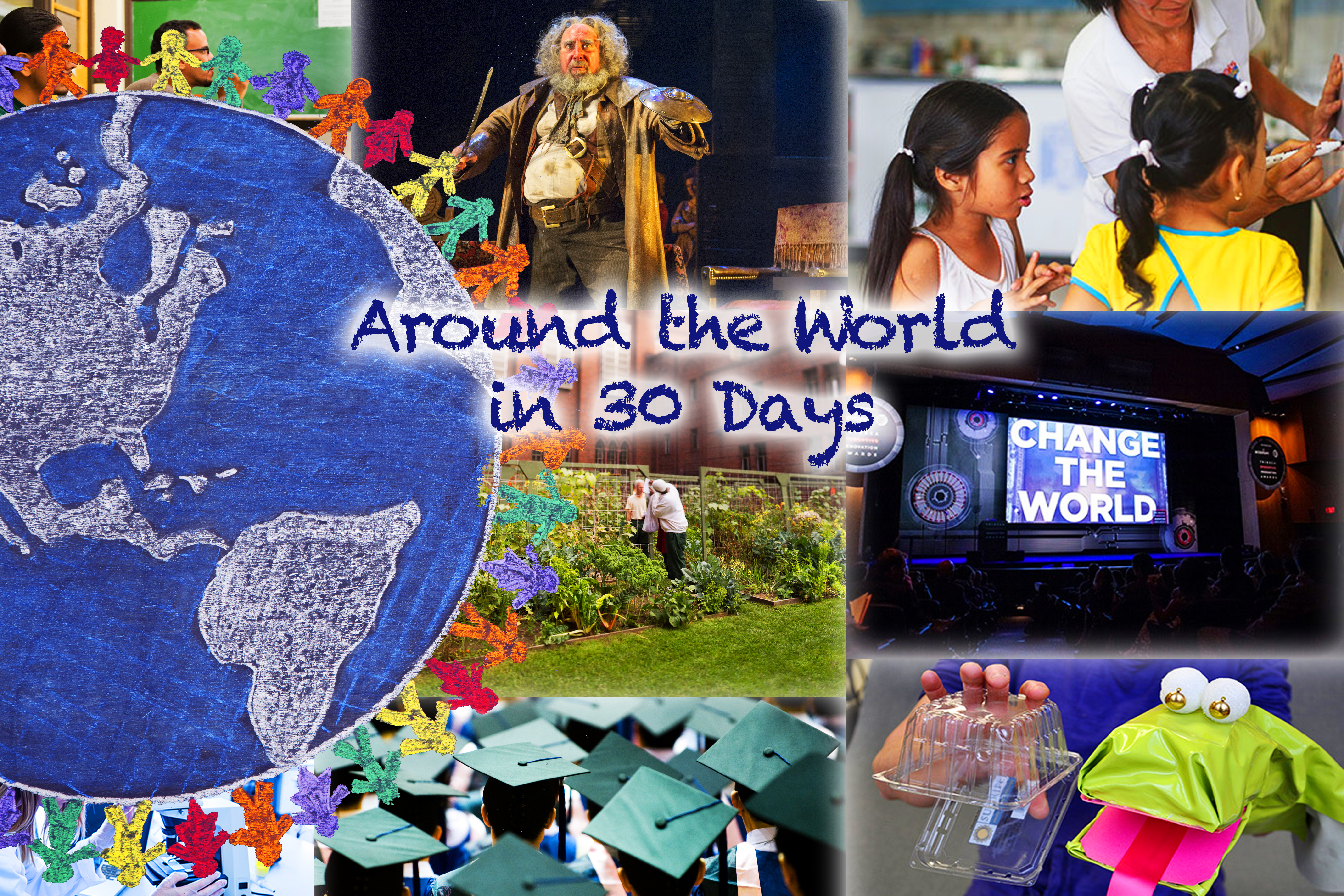
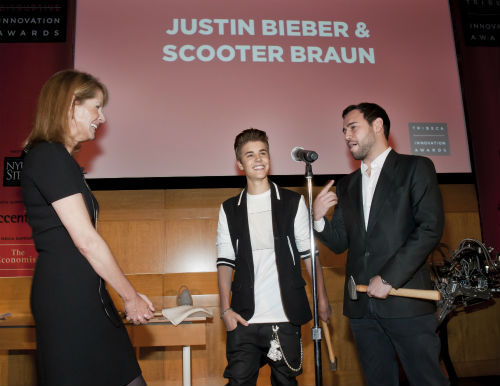
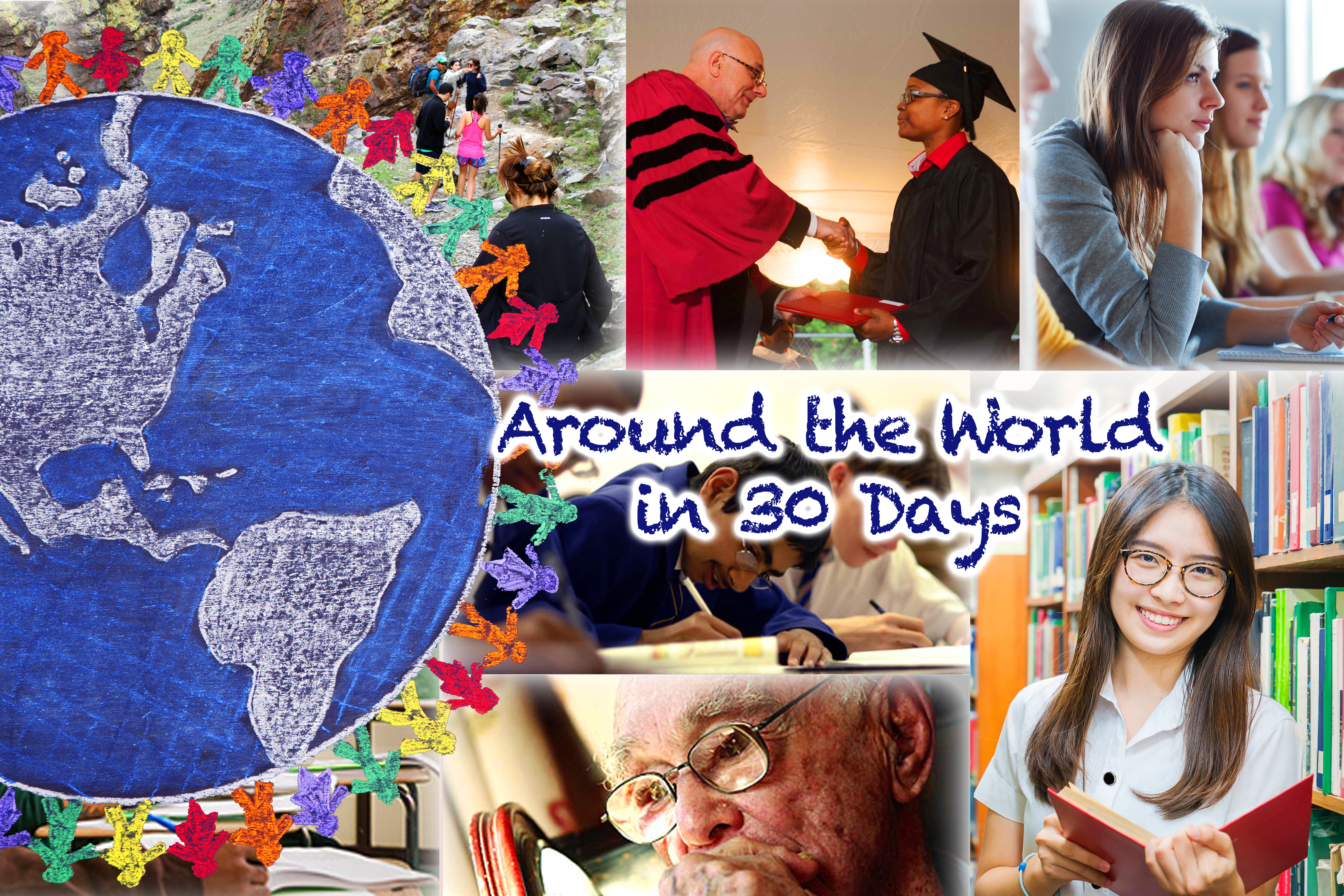
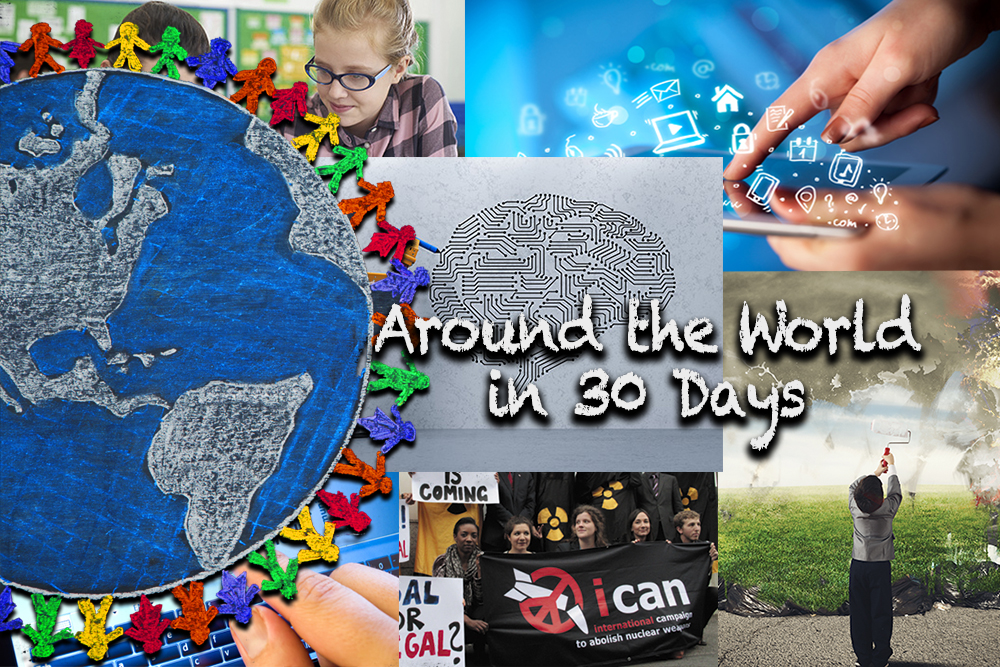
Recent Comments